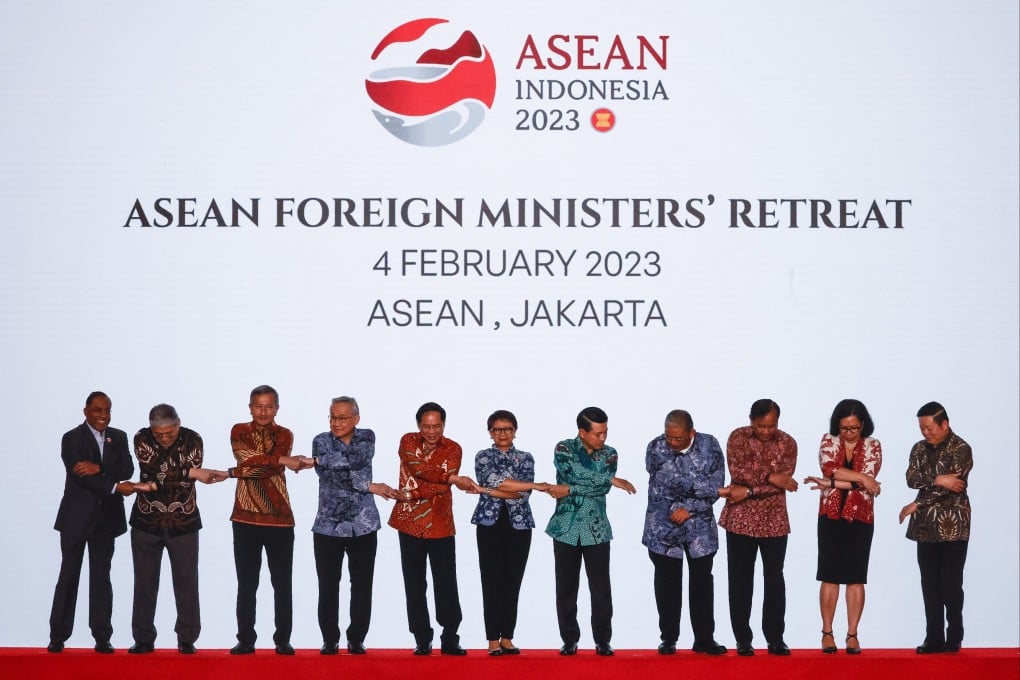Advertisement
Opinion | Only a strong, united Asean can withstand pressure of US-China great power rivalry
- If Asean leaders truly believe centrality is needed to survive great power rivalry, they must do more to strengthen the bloc’s unity
- Trade, education and cultural exchanges can foster a strong sense of interdependence and common prosperity to counter mutual distrust
Reading Time:3 minutes
Why you can trust SCMP
5

French President Emmanuel Macron’s recent comments about the European Union’s strategic independence amid big power conflict, while music to Beijing’s ears, displeased many proponents of closer transatlantic relations. Asean leaders such as Malaysia’s Anwar Ibrahim and Singapore’s Lee Hsien Loong have also called for cooperation over destructive rivalry.
The centrality of the Association of Southeast Asian Nations has been championed as a strategy in fending off the pressure the region comes under from big power conflicts. It is also an Asean quality that both the United States and China appear to support. But how the regional bloc can shore up its centrality is not easily answered.
Asean, with its members’ distinct cultures and plurality of religions, is not a homogenous community and the bloc has a bedrock principle of non-interference in each other’s domestic affairs. For Asean centrality to work well, the development of commonalities is essential.
Yet the lack of institutional efforts to promote cultural interaction among the people of Asean severely restricts this goal. Ironically, the superpowers that Asean leaders are so wary of seem to have done more to bring Asean citizens together, if only to align with their narratives and interests.
The US has poured in the most resources. Its Young Southeast Asian Leaders Initiative, established in 2013 during the Obama administration’s “pivot to Asia”, offers cultural exchanges through workshops in the Asean region and to the US, and provides seed grants for social projects.
The network has grown to some 150,000 young people across Asean, and its alumni includes leaders in government, civil society and corporations.
Advertisement
